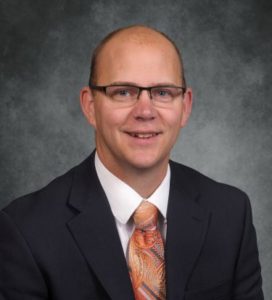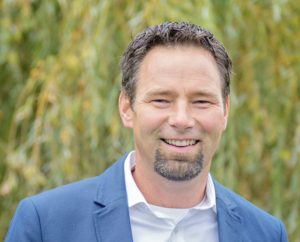LN Feature: 2017: A Year in Review



MP: Yeah. I could touch on our first-ever God and Government Youth Conference, the big legal win we had against the Province of Ontario in the FIPPA case; maybe the Bibles that went to every federal and provincial (elected) government official in our land. Those were big developments, and there was many more.
But when I was thinking about highlights, I made a note to myself that I don’t want to forget about the so-called “little things”; the things like that flag display that happened in Abbotsford on July 1st this summer, or that letter to the editor that was published on the topic of transgenderism in Winnipeg this spring, or the visit that some of our ARPA staff had with the NDP Justice Critic to discuss the issue of Restorative Justice this past spring in conjunction with our policy report on that topic.
And the reason why I’m singling these out as highlights even is because they were so ordinary that most of our listeners wouldn’t have even noticed them. That flag display was one of 18 that went up this year. That letter to the editor was one of dozens that were published in community papers across this country. That visit with the MP was one of about 8 that our staff did in February just on that one issue. And I could go on to then list thousands more examples of faithful political action done by Christians in this land. And I’m making this point, Al, because I’m convinced that these ordinary actions that I just described really are “big”. They really are radical. The ordinary (things) ought to be a highlight, because they’re evidence of the fact that ARPA’s work is not just about making a big splash, or doing something we haven’t done before. It’s about those humble, faithful sacrifices being made by ordinary Reformed Christians in our day to day lives, from Yarrow – where Mike is – all the way across to Ottawa and everywhere in between.
LN: Let’s look forward to 2018 a minute. What can we look forward to in terms of some of the things that ARPA’s putting together?
MP: Well, from an organizational perspective, we’re looking forward to having Ed Hoogerdijk come on board as our Alberta Director this summer, the Lord willing. He’s based in Calgary, and he’s going to devote his full time to mobilizing Albertans for political action, and also bringing an explicitly Christian perspective to the provincial government in Edmonton. We’re expecting more challenges coming from that government this year, so it’s quite a blessing to have someone on the ground there in that province.
As for our activities going into the New Year, we don’t plan on changing course much from what we have been doing. Coming up this spring, we’re looking forward to another God and Government conference, and we hope to have dates and more details out about that conference soon. And just on that note, I want to take this opportunity Al – to our listeners – anybody who has gone to God and Government in the past has left highly recommending it to everybody else. Not only will you have an opportunity to visit our beautiful nation’s capital, you’ll also be equipped – we will help you – to be able to meet with our leaders to share your convictions; to share your heart with them. You don’t have to be experienced, we’re there to help you in that. So I want to encourage our listeners to think about that over this Christmas break.
LN: André. Legal highlights for 2017. We were in court a fair bit. Talk to me a little about some of the successes, and some of the maybe not-so-much-successes but presentations we made.
AS: It was an exciting year this year, Al, because we started off with a court challenge where we sued the Ontario government for access to abortion statistics. That court case was heard the first of February, and we got a decision in June where ARPA Canada together with Patricia Maloney were successful. We successfully sued the Ontario government; the judge ruled that it was unconstitutional for the Ontario government to ban access to abortion statistics in this province which was a great win.
It was the first time we’ve ever done something like that. Previous court action by ARPA was only as an intervenor; this was the first time we took a government to court ourselves, and it was really exciting to see that win. It was very encouraging to see that win.
We’ve also been in the Supreme Court twice towards the end of this year; we were in the Supreme Court as an intervenor on the Wall case – that’s the church discipline case – and then again at the end of the month of November we were in court again (final court of appeal) for the Trinity Western University case. We’ve been tracking this case – we’ve been involved in this case – for three years in a row now, and it’s finally reached its final court of appeal and again we could make oral arguments to the Supreme Court in that matter too.
In both of those Supreme Court cases, we’re waiting on the decision(s) and we’ll be reporting on those, I’m quite sure, in the first half of 2018.
LN: What about the lobbying side? I mean, you’re “Law and Policy”. So that also gets you involved in some of the political stuff. Any successes or things that stand out there from the past year?
AS: Yeah, I think that one of the big ones at the federal level would be Bill C-51, which was going to strike out Section 176 of the Criminal Code which gives special criminal law protection for religious worship services. And we saw a massive response from the grassroots on that one, where basically over the course of a weekend ARPA supporters sent 1,200 EasyMail letters to that committee such that later that week they changed their mind, and they did in fact keep that protection for religious worship services. Which was really encouraging. And I think that became a lesson for me personally, and I hope for all of our supporters too, that where we do two things – where we pray and then work – wonderful things can happen by the grace of God.
And then we’ve seen some lobbying on the provincial level as well. We saw some lobbying on “bubble zone” legislation in Ontario, and some radical changes to family law also in Ontario.
We saw a wonderful grassroots lobbying campaign in Alberta on Bill 24; we saw a record number of EasyMails sent to the Alberta Legislature on pretty radical changes to the education laws there. So all of those things, we just rejoice with our grassroots that so many have been inspired to action.
LN: Take me ahead to 2018. What kind of legal cases might we be taking on? And of course, on legal cases you don’t tip your hand on specifics, but sort of in principle, where are we going?
AS: There’s definitely a number of different matters that are either in court right now or will be soon that have our eye. I can’t say too much except that we’re certainly watching – with interest – the Lamb case in British Columbia which is a case where a young woman with Spinal Muscular Atrophy is suing the federal government saying that the new euthanasia law is too restrictive; that it’s infringing on her right to access assisted suicide. We’re concerned about that case because it seeks to blow wide open the already wide open door to euthanasia and assisted suicide.
In Alberta, there’s ongoing concerns about parental rights and responsibilities as it relates to education and religious freedom and associational freedom, and there’s a possibly a court action going to be launched in the early New Year, and ARPA wants to keep an eye on that; possibly intervene there if required.
And then in Ontario too, the bubble zone legislation that was passed where any sort of disapproval of abortion communicated in any way within a certain number of metres of an abortion clinic is now illegal in Ontario. And many lawyers that I’ve talked to think that law is unconstitutional; it unjustifiably infringes on freedom of expression. So we may or may not get involved in a court challenge there as well.
So those are some legal issues that we’re keeping an eye on, and we’ll see how that develops in 2018.
LN: Mike Schouten, your turn. Let’s go back to 2017. What’s the one thing that We Need a Law accomplished that stands out for you? I mean, the whole thing there is about the Overton Window and you know, promoting discussion about the preborn human rights file. What kind of things did we do to move that window this year?
MS: Well I think Al, I’d have to answer the question by saying it was a lot of things. It wasn’t just one thing that really sticks out in my mind that we accomplished and said “You know what? In 2017, we did this.” It was a lot of little things, and as you indicated, pushing towards that objective of shifting the Overton Window, and with a very specific goal, and that goal is to see the introduction of an International Standards abortion law. That’s one of the three initiatives that We Need a Law is constantly promoting, but it’s one that we’ve sort of made a concerted effort to say “Hey, the next piece of legislation we’d love to see introduced is a law that would take Canada in line with countries around the world by protecting preborn children after the first trimester.” And we really see this as a realistic first step towards protecting all human beings from conception onwards.
So there’s so many little things that – you know, tying into what Mark said – that we can think of that helped to shift the Overton Window. We produced a brand new video this year outlining why we need an International Standards law. We produced a very snazzy-looking info-graphic that many university and college campus clubs have been using to spread around and start conversations. We’ve had almost 20 flag displays; many of them, too, on university campuses. So this all indicates to us that the Overton Window is shifting, and especially – we especially notice it – when the media reports on the abortion status quo.
And we saw that manifest especially this fall, when MP Rachael Harder – an MP from southern Alberta – she was kinda yanked out of the Chair position of the Status of Women Committee. There was a lot of media backlash just about democracy in general and about people’s ability to have their own beliefs and so serve the country. But also, the conversations when they regarded, you know, where we are – where Canada is – when it comes to protecting preborn children, the mainstream media are really recognizing that we’re way out of line with where everybody else stands.
So those things all are encouraging to us and they indicate that, yes, that shift is happening. And it’s happening because as an organization ARPA Canada and the We Need a Law campaign that they sponsor keeps focusing on this one message. And our grassroots are also doing that. So our lawmakers are hearing it from many different audiences; from the lay-person in the communities to professional lobbyists that meet with them on the Hill on a regular basis. So for that, we can be very encouraged and look back on 2017 and say “yeah, we again shifted the Overton Window towards a more favourable position when it comes to protecting preborn children.”
LN: One of the things that stands out for me is how highly the social conservative, pro-life candidates – particularly Brad Trost and Pierre Lemieux and also Andrew Scheer – placed in the national Conservative Party leadership race. I mean, that’s also evidence that the discussion is ongoing.
MS: It certainly is. We’re not necessarily as involved as some other organizations are in getting votes out and building support for individual candidates, etc – we’re non-partisan when it comes to those kinds of things – but I think what that shows; the fact that candidates like Brad Trost and Pierre Lemieux and then the eventual winner of the leadership, Andrew Scheer – all so-called “socially conservative candidates” – fared so well in the leadership race is because socially conservative Canadians, Christians, people who want preborn human right to be protected; they’re recognizing that if we want to eventually get to the place where preborn children are protected, we necessarily need people in power who can enact those laws. So socially conservative Canadians – I would say – are becoming far more intentional about their political involvement. They’re purchasing party memberships when the opportunity comes up, to support individuals who are going to stand for the same principles that they stand for.
LN: So from We Need a Law’s perspective, what’s ahead for 2018? I remember the big one from two years ago was the Baby Bootie thing which just exploded and did a lot better than anybody expected. We’re probably not going to do that again, but do we have anything like that on the horizon?
MS: Well, when I look to 2018 there’s two things that I’m really excited about. One is our Parental Consent initiative in Saskatchewan. The leadership candidates for the Sask Party – that’s the governing party in Saskatchewan – have all (or a majority of them) have spoken out favourably towards Parental Consent for Abortion legislation. And that’s a direct fruit of the work that’s been going on in that province, so I’m very much looking forward to January 27th, when that leadership race culminates, and working with the new leadership there.
The other thing that we’re really excited about, and that’s going to take place probably over the first quarter of the New Year, is what we’re calling the “Great Riding Roundup.” So this is very much a grassroots initiative where the goal is to find at least one person in all 338 (federal) ridings who will commit to hand-writing a letter to their Member of Parliament. We’re committed as an organization to helping them with talking points etc, but we want to find at least one person in all of those ridings. Because we know the value of hand-written communication, and we want to be able to work with people right across the whole country who are committed to actually doing that. Those people would be very active and engaged in the ongoing efforts to protect preborn children.
LN: OK. We’re just about out of time. Final question for Mark. You know, I got the donor update a couple of weeks ago, and there’s a reference in there to the notion that ten years ago there was a lot of apathy in the Christian community – the Reformed Christian community – about politics. People kinda looked at ARPA and went “Seriously? Are you kidding? I mean, we’re gonna get involved in politics?”
That’s changed, right?
MP: There’s no doubt about that. When we started; I look back on that time and I recall there was not much confidence about this idea of ARPA Canada. And you know what? There was probably good reason for that lack of confidence. We had limited talent, limited experience. We had a budget of under $10-thousand dollars. And the overall environment in Canada when it came to political action in the Reformed community was not that optimistic. There was a variety of reasons for that, but so much has changed in these past 10 years.
God has blessed us with countless people to help us out. He provided staff who have that talent. He gave us experience that we would have never imagined like appearing before the Supreme Court of Canada twice this past month. He’s provided so many generous hearts so that our budget is now over a million dollars annually. And I’d say most of all, what He’s done is He’s melted cynical hearts.
So when I look back on what you described just there, Al – 10 years ago – it makes me conclude that this is 100% the work of the Lord. Just like it says in I Corinthians 1, “God does use the weak things of the world.” And I think He does that as a reminder to us that everything really comes from Him.
And that’s the story of ARPA this past decade, just as it’s the story of many of us individually. We have a great God, and that’s why I am so encouraged when we are on the threshold of a New Year.